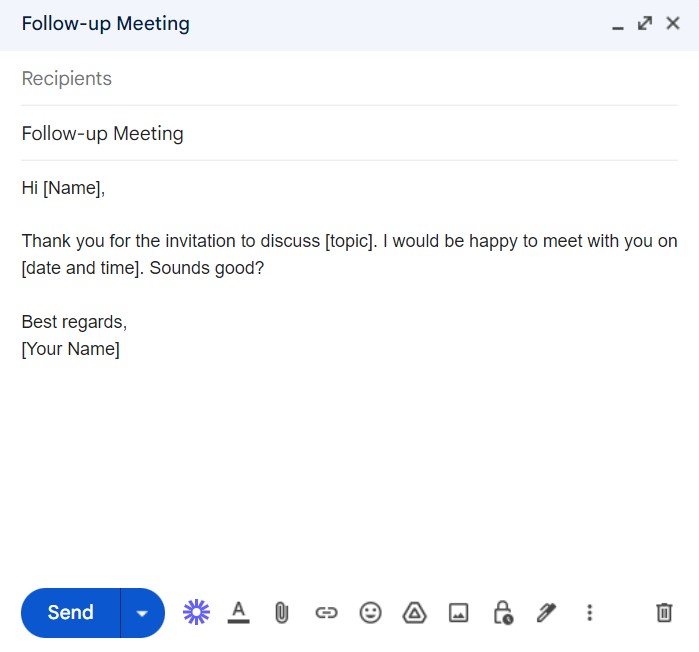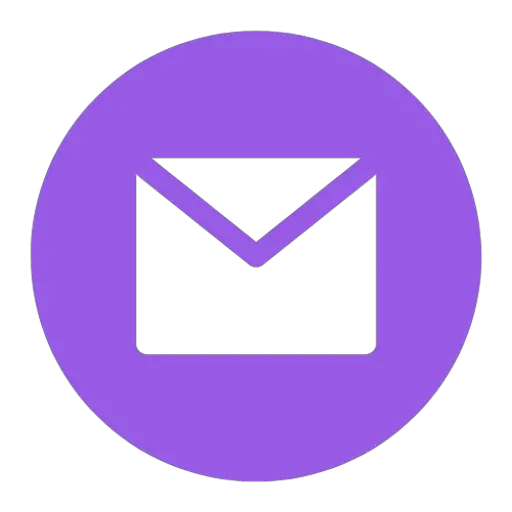As a professional, you want to make sure that your emails are clear, concise, and convey the intended message.
One phrase that can help you achieve this is “Sounds good.” It’s a simple, yet effective way to express agreement or acceptance in a professional setting.
In this article, we’ll show you how to use “Sounds good” in an email, provide you with some examples, and also share alternative phrases that you can use to convey the same message.
Contents
- How to Use “Sounds Good” in an Email
- “Sounds Good” Email Examples
- Example 1 – Subject: Follow-up Meeting
- Example 2 – Subject: Project Update
- Example 3 – Subject: Job Interview
- Example 4 – Subject: Lunch Meeting
- Example 5 – Subject: Proposal Review
- Example 6 – Subject: Training Session
- Example 7 – Subject: Interview Feedback
- Example 8 – Subject: Presentation Review
- Example 9 – Subject: Partnership Proposal
- Example 10 – Subject: Follow-up Call
- Alternative Ways to Say “Sounds Good” in an Email
How to Use “Sounds Good” in an Email
When you receive an email that proposes an idea or suggestion, you may want to respond with “Sounds good” to indicate that you agree.
It’s a friendly and professional way to express your acceptance.
However, keep in mind that “Sounds good” may not always be appropriate.
For instance, if you’re rejecting an offer or proposal, it would be best to use a more direct approach.
Here are a few tips to help you use “Sounds good” effectively in your emails:
- Use “Sounds good” to indicate agreement or acceptance
- Use it when you want to show appreciation or gratitude
- Use it when you want to sound friendly and approachable
“Sounds Good” Email Examples
Example 1 – Subject: Follow-up Meeting
Hi [Name],
Thank you for the invitation to discuss [topic]. I would be happy to meet with you on [date and time]. Sounds good?
Best regards,
[Your Name]
Example 2 – Subject: Project Update
Hi [Name],
Thanks for sending the latest update on the project. It looks like we’re making good progress. Sounds good to me.
Best regards,
[Your Name]
Example 3 – Subject: Job Interview
Hi [Name],
Thank you for considering me for the [position] role. I’m available for the interview on [date and time]. Sounds good to you?
Best regards,
[Your Name]
Example 4 – Subject: Lunch Meeting
Hi [Name],
It was great meeting you at the conference last week. I would love to catch up over lunch sometime this week. How about [date and time]? Sounds good?
Best regards,
[Your Name]
Example 5 – Subject: Proposal Review
Hi [Name],
Thank you for sending the proposal. It looks good, and I’m excited about moving forward. Sounds good to you?
Best regards,
[Your Name]
Example 6 – Subject: Training Session
Hi [Name],
Thank you for scheduling the training session. The date and time you suggested work for me. Sounds good to you?
Best regards,
[Your Name]
Example 7 – Subject: Interview Feedback
Hi [Name],
Thanks for taking the time to interview me for the [position] role. I’m interested in hearing your feedback. Sounds good?
Best regards,
[Your Name]
Example 8 – Subject: Presentation Review
Hi [Name],
Thank you for sending the presentation. I think it’s well-prepared, and I have no further comments. Sounds good to you?
Best regards,
[Your Name]
Example 9 – Subject: Partnership Proposal
Hi [Name],
I appreciate the partnership proposal you sent. It aligns with our company’s goals, and I’m interested in discussing it further. Sounds good to you?
Best regards,
[Your Name]
Example 10 – Subject: Follow-up Call
Hi [Name],
Thank you for the call earlier today. I’m available for a follow-up call on [date and time]. Sounds good to you?
Best regards,
[Your Name]
Alternative Ways to Say “Sounds Good” in an Email
While “Sounds good” is a commonly used phrase in emails, you may want to vary your language to avoid repetition or to convey a slightly different tone.
Here are a few alternative phrases that you can use:
- “That works for me”
- “I’m on board”
- “I’m in agreement”
- “That sounds perfect”
- “Excellent, let’s do it”
- “I think that’s a great idea”
- “It’s settled then”
- “I have no objections”
- “Consider it done”
- “Sounds like a plan”
In conclusion, using “Sounds good” in an email is a simple and effective way to convey agreement or acceptance.
However, it’s important to use it appropriately and avoid overusing it.
We hope that the examples and alternative phrases provided in this article will help you improve your email communication and convey your messages in a professional and friendly manner.


